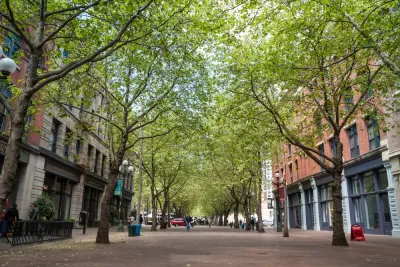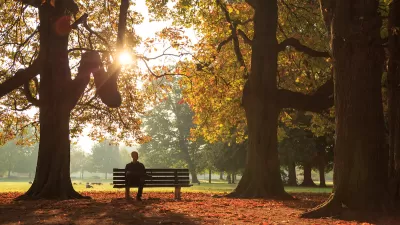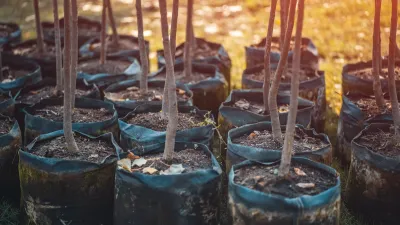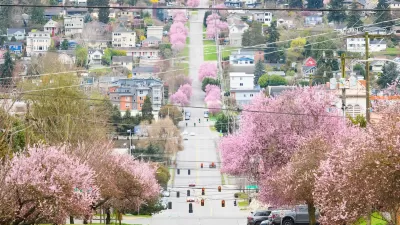Housing and environmental activists are calling on the city to commit to a ‘Trees and’ approach, rejecting the perceived conflict between housing affordability and a healthy urban tree canopy.

An opinion piece by Joshua Morris and Laura Loe calls on Seattle city leaders to commit to both improving housing affordability and preserving and growing the urban tree canopy, arguing that conservation and affordable housing don’t have to be mutually exclusive. As Morris and Loe write, “Much of the controversy springs from exaggerated narratives that pit trees against development, affordable housing, transit, views, solar access, and utilities.”
The authors urge the city to take a different approach. “As Seattle begins to consider its next comprehensive plan, we ask the development community and urban forest advocacy groups to commit to a ‘Trees and’ approach instead. We must protect more big trees and house more neighbors.”
As the article notes, “The planning process is expected to integrate both climate change adaptation/mitigation and racial/social justice. Urban forestry goals can support both major themes.”
After all, urban trees are amazing stormwater managers and air purifiers, plus they help cool our communities. Density advocates, motivated by concerns over the climate emergency and a desire to reduce transportation modes dependent on fossil fuels, should speak loudly on behalf of strengthening our urban tree canopy.
The authors pose some critical questions to consider as the city begins updating its comprehensive plan: “Whose financial responsibility should it be to maintain street trees and residential trees? Will decisions around tree canopy use a Race and Social Justice analysis? Can we move beyond parking strips and reclaim parking lanes for trees? How do we move away from poisonous, colonial, bourgeois lawns? Might we reforest some of Seattle’s public golf course spaces?”
FULL STORY: Seattle Can Have More Trees and More Housing at the Same Time

Montreal Mall to Become 6,000 Housing Units
Place Versailles will be transformed into a mixed-use complex over the next 25 years.

Planetizen Federal Action Tracker
A weekly monitor of how Trump’s orders and actions are impacting planners and planning in America.

DARTSpace Platform Streamlines Dallas TOD Application Process
The Dallas transit agency hopes a shorter permitting timeline will boost transit-oriented development around rail stations.

Interactive Map Reveals America's “Shade Deserts”
Launched by UCLA and American Forests to combat heat-related deaths, the tool maps the shade infrastructure for over 360 U.S. cities.

Bicycles and Books — In Sacramento, Libraries Now Offer Both
Adult library card holders can check out e-bikes and e-trikes for up to one week.

Colorado Landfills Emit as Much Pollution as 1M Cars
Landfills are the third-largest source of methane pollution in Colorado, after agriculture and fossil fuel extraction.
Urban Design for Planners 1: Software Tools
This six-course series explores essential urban design concepts using open source software and equips planners with the tools they need to participate fully in the urban design process.
Planning for Universal Design
Learn the tools for implementing Universal Design in planning regulations.
City of Mt Shasta
City of Camden Redevelopment Agency
City of Astoria
Transportation Research & Education Center (TREC) at Portland State University
US High Speed Rail Association
City of Camden Redevelopment Agency
Municipality of Princeton (NJ)





























